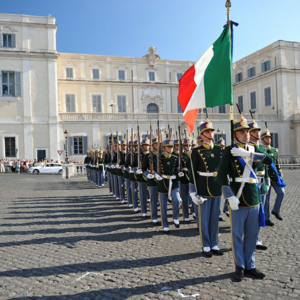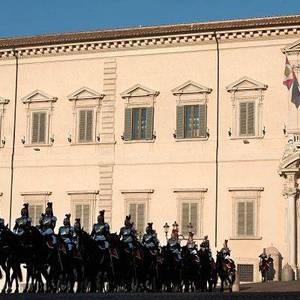On Thursday, the second day of formal consultations in the Quirinal Palace, the risk of new elections continued to cast a shadow over the talks guided by President Sergio Mattarella. And in a changing Italy its youthful new Parliament just may prove unpredictable.
You chose: quirinal palace
-
-
With a newly elected president, changes are being made to the visiting hours of the historic, 16th-century Palazzo del Quirinale. Soon the Presidential Palace will be open for daily visitors, far longer than it has been opened to the public in the past.
-
Former President Giorgio Napolitano left office definitively Jan. 14, returning to his home in Rome’s colorful, ancient Monti quarter, a stone’s throw from Trajan’s Forum. His departure after nine turbulent years in office was moving to watch as, in the great courtyard of the Quirinal Palace, he received the formal farewell salute of a horseback brigade in full regalia. Now, with that ritual behind, the less elegant horse trading to elect a successor begins in earnest. Two years ago Napolitano agreed to succeed himself only to break a long political stalemate. The question is whether that stalemate will be repeated, without a Giorgio Napolitano to smooth over a difficult transition
-
In his customary cordial way, President Giorgio Napolitano read the political elite of Italy the polite equivalent of the riot act. On Tuesday the president made his traditional end-of-year address to the ranking elders of the Italian state, and it obviously represented a carefully considered sermon. He also insinuated that he will end his term of office Jan. 14, after which a new president must be chosen.
-
Italian President Giorgio Napolitano refused to sign the bill on fiscal federalism, with comments that it was “unreceivable,” poorly drafted and generic. For Berlusconi the bill was a promise he had to keep, not least because Bossi, the head of the Northern League and the prime sponsor of federalism, is the beleaguered Premier’s sole remaining ally in government. To many, the rebuff showed that the government itself has come to a screeching halt


































